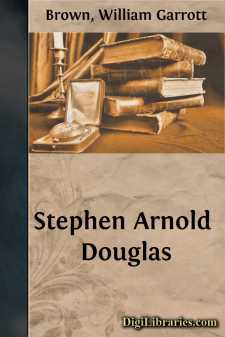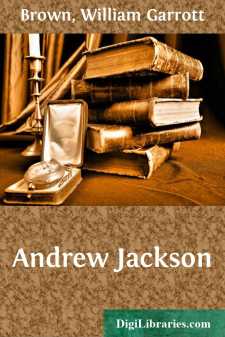Categories
- Antiques & Collectibles 13
- Architecture 36
- Art 48
- Bibles 22
- Biography & Autobiography 813
- Body, Mind & Spirit 142
- Business & Economics 28
- Children's Books 15
- Children's Fiction 12
- Computers 4
- Cooking 94
- Crafts & Hobbies 4
- Drama 346
- Education 46
- Family & Relationships 57
- Fiction 11829
- Games 19
- Gardening 17
- Health & Fitness 34
- History 1377
- House & Home 1
- Humor 147
- Juvenile Fiction 1873
- Juvenile Nonfiction 202
- Language Arts & Disciplines 88
- Law 16
- Literary Collections 686
- Literary Criticism 179
- Mathematics 13
- Medical 41
- Music 40
- Nature 179
- Non-Classifiable 1768
- Performing Arts 7
- Periodicals 1453
- Philosophy 64
- Photography 2
- Poetry 896
- Political Science 203
- Psychology 42
- Reference 154
- Religion 513
- Science 126
- Self-Help 84
- Social Science 81
- Sports & Recreation 34
- Study Aids 3
- Technology & Engineering 59
- Transportation 23
- Travel 463
- True Crime 29
Stephen Arnold Douglas
Categories:
Description:
Excerpt
CHAPTER I
YOUTH AND THE WEST
The ten years of American history from 1850 to 1860 have a fascination second only to that of the four years which followed. Indeed, unless one has a taste for military science, it is a question whether the great war itself is more absorbing than the great debate that led up to it; whether even Gettysburg and Chickamauga, the March to the Sea, the Wilderness, Appomattox, are of more surpassing interest than the dramatic political changes,—the downfall of the Whig party, the swift rise and the equally swift submergence of the Know-Nothing party, the birth of the Republican party, the disruption and overthrow of the long-dominant Democratic party,—through which the country came at last to see that only the sword could make an end of the long controversy between the North and the South.
The first years of the decade were marked by the passing of one group of statesmen and the rise of another group. Calhoun's last speech in the Senate was read at the beginning of the debate over those measures which finally took shape as the Compromise of 1850. The Compromise was the last instance of the leadership of Clay. The famous Seventh of March speech in defense of it was Webster's last notable oration. These voices stilled, many others took up the pregnant theme. Davis and Toombs and Stephens and other well-trained Southern statesmen defended slavery aggressively; Seward and Sumner and Chase insisted on a hearing for the aggressive anti-slavery sentiment; Cass and Buchanan maintained for a time their places as leaders in the school of compromise. But from the death of Clay to the presidential election of 1860 the most resonant voice of them all was the voice of Stephen Arnold Douglas. It is scarcely too much to say that during the whole period the centre of the stage was his, and his the most stirring part. In 1861, the curtain fell upon him still resolute, vigorous, commanding. When it rose again for another scene, he was gone so completely that nowadays it is hard for us to understand what a place he had. Three biographers writing near the time of his death were mainly concerned to explain how he came to be first in the minds of his contemporaries. A biographer writing now must try to explain why he has been so lightly esteemed by that posterity to which they confidently committed his fame. Blind Tom, the negro mimic, having once heard him speak, was wont for many years to entertain curious audiences by reproducing those swelling tones in which he rolled out his defense of popular sovereignty, and it is not improbable that Douglas owes to the marvelous imitator of sounds a considerable part of such fame as he has among uneducated men in our time. Among historical students, however seriously his deserts are questioned, there is no question of the importance of his career.
He was born April 23, 1813, at Brandon, Vermont, the son of Stephen Arnold Douglas and Sarah Fisk, his wife. His father, a successful physician, was doubtless of Scotch descent; but the founder of the Douglas family in America was married in Northamptonshire. He landed on Cape Ann in 1639–40, but in 1660 he made his home at New London, Connecticut. Dr. Douglas's mother was an Arnold of Rhode Island, descended from that Governor Arnold who was associated with Roger Williams in the founding of the colony. Sarah Fisk's mother was also an Arnold, and of the same family. Their son was therefore of good New England stock, and amply entitled to his middle name. Dr. Douglas died suddenly of apoplexy in July, 1813; it is said that he held the infant Stephen in his arms when he was stricken. His widow made her home with a bachelor brother on a farm near Brandon, and the boy's early years were passed in an environment familiar to readers of American biography—the simplicity, the poverty, the industry, and the serious-mindedness of rural New England....



